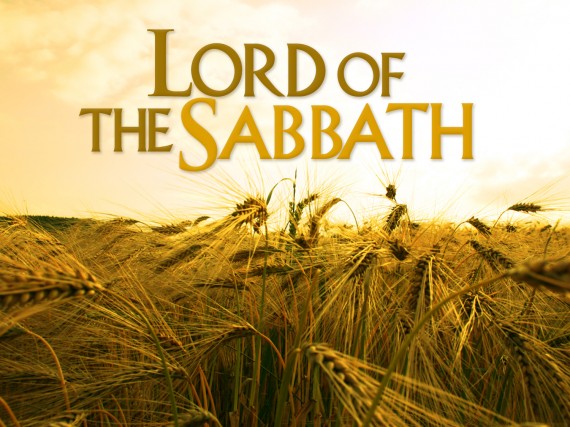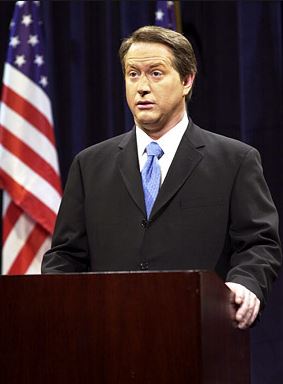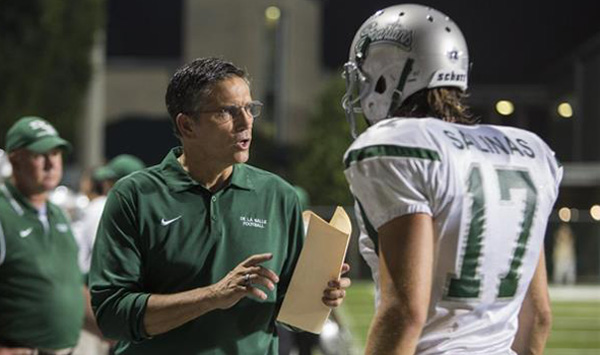 Articles in this section are from the past 6 to 12 months,
Articles in this section are from the past 6 to 12 months,
The Sabbath was made for man, not man for the Sabbath. Mark 2.27
 When Jesus and his disciples are accused of breaking the Sabbath, Jesus can respond to the Pharisees in a variety of ways. He can quote the already rich tradition of the rabbis on the subject and get into a debate about that tradition. He can stick to scripture and demonstrate that technically, rubbing the husks off grain in your palms does not constitute “threshing” and thus does not violate the letter of the Law. But Jesus refuses to engage the Pharisees in this way – ever. Jesus refuses to either invest rabbinic tradition with normative force, or to use the Bible in the way the rabbis used it.
When Jesus and his disciples are accused of breaking the Sabbath, Jesus can respond to the Pharisees in a variety of ways. He can quote the already rich tradition of the rabbis on the subject and get into a debate about that tradition. He can stick to scripture and demonstrate that technically, rubbing the husks off grain in your palms does not constitute “threshing” and thus does not violate the letter of the Law. But Jesus refuses to engage the Pharisees in this way – ever. Jesus refuses to either invest rabbinic tradition with normative force, or to use the Bible in the way the rabbis used it.
What Jesus does is to use God’s law to identify, and to be obedient to God’s will. Reading the original command in Exodus 20.8-11 it is clear that God has given us an example of rest. Since He stopped working for a day and He expects us to stop. He expects us to provide ourselves, our children, our servants, and our animals a day of rest that we would be loath to provide apart from His command. He made the Sabbath for man (and beast). Jesus, in the passage cited above (Mark 2.23-28), provides the Pharisees an example from the Old Testament - David eating the consecrated bread of the Tabernacle - of someone in violation of the letter of the law, but not of the will of God. The Pharisees had make Sabbath keeping a burden, thus, though they respect the letter of the law, are violating the will of God. Jesus’ final point is that since He is the Son of Man (i.e. the Messiah) He is Lord of the Sabbath. Sabbath keeping is determined by the will of God. As God’s Messiah He is uniquely qualified to determine what it is and what it isn’t.
God is changeless (James 1.17). His laws have changed, though. They are age-appropriate. The sacrificial system of the Mosaic Law is completely inappropriate now that Jesus has sacrificed Himself once-for-all. Now we offer ourselves as living sacrifices (Romans 12.1-2). God’s laws are an expression of His will. We can litigate the letter of His laws and get everything wrong, or we can discern the will they communicate and live righteously.
Jesus really expands upon this way of reading scripture in the Sermon on the Mount. “You have heard that it was said, ‘You shall not commit adultery.’ But I say to you that everyone who looks on a woman to lust for her has already committed adultery with her in his heart,” (Matthew 5.27-28). If we see only the letter of the law then we end up arguing whether President Clinton was telling the truth about Miss Lewinski. But if we, like Jesus, use the letter to discern God’s will, we understand that it is wrong for a man to derive sexual pleasure from a woman who is not his wife - whether he uses his eyes, or other body parts.
This is not situation ethics. The way Jesus teaches us to read and apply scripture is all-encompassing. There are no loopholes in it. If we understand God’s law this way then we see no contradiction between His command that the Israelites not mingle with other nations (Deuteronomy 7.3), and His welcoming Rahab, and Ruth into the faith community, and the lineage of Christ. If we understand God’s law this way we see, as Jesus does, that it was right for David to eat the consecrated bread. If we understand God’s law this way there can be no loophole for sin, no rationalization that it is okay to break the spirit of the law because we haven’t broken the letter of it.
Jesus teaches us to read the Bible a certain way. Our alternatives are to extend moral license, or to insist we all be lawyers. I prefer Jesus’ way.
Take your son, your only son , Isaac, whom you love, and go to the land of Moriah, and offer him there as a burnt offering on one of the mountains of which I will tell you. - Genesis 22.2
There are times as a reader that you are shocked by a passage, despite having read it hundreds of times over scores of years. I never cease to be jarred when David “takes” Bathsheba, and then arranges the death of her husband, for instance.
 As you read along in Genesis you wait nine chapters for the child of promise to be born. When Isaac finally arrives, his mother is 90 years old and his dad is 100. So when God, in the very next chapter, tells Abraham to sacrifice Isaac it shocks every time. In the first place human sacrifice is never sanctioned by God. Then there is the way God makes the emotional stress of this command as extreme as possible. He doesn’t just say, “Take Isaac.” He says, “Take your son, your only son, Isaac, whom you love…” Is that really necessary?
As you read along in Genesis you wait nine chapters for the child of promise to be born. When Isaac finally arrives, his mother is 90 years old and his dad is 100. So when God, in the very next chapter, tells Abraham to sacrifice Isaac it shocks every time. In the first place human sacrifice is never sanctioned by God. Then there is the way God makes the emotional stress of this command as extreme as possible. He doesn’t just say, “Take Isaac.” He says, “Take your son, your only son, Isaac, whom you love…” Is that really necessary?
This isn’t all God says, though. He says “take him to a place which I will tell you.” I think this statement is a strong message of reassurance. When God first calls Abraham, He tells him to go to “To the land I will show you,” (Genesis 12.1). When He includes the same detail in Genesis 22 it is a way of saying to Abraham, “I have been with you this far, you can trust Me now.”
God does that – He continually gives us reminders of His presence, and of our special relationship to Him. He spoke from the parted heavens when Jesus was baptized. He spoke thus again on the Mount of Transfiguration, after giving Jesus a measure of His Heavenly Self. He says to Jesus, “I and here, and You are Mine.”
I have had such experiences – times when I thought God was giving me a nudging reminder of His benevolent presence. Once was in seminary. I was depressed, seriously doubting God’s goodness. It was early October – a bleak day that promised rain without delivering it. As I walked down the hill this large flock of starlings was flying in mass synchronization up and down and around the hill. Suddenly they started flying at ground level up the hill, right past me. I could feel the wind of their wing beats all around. After cresting the hill, they flew back down again, whizzing past, an inch away on every side as I stood frozen. It could have been a coincidence, but I felt like I was being told, “I am here, and I am good.”
Once when my oldest daughter was exactly the age her daughter is now I was playing volleyball at a church picnic and had to leave the game to change a diaper. I was not happy because I had just rotated to the front, and there was a deacon across the net from me I was itching to spike the ball on. As I was changing Jessica’s diaper she started singing “Jesus Loves Me.” It was the sweetest thing I had ever heard. There is something about hearing your own child singing that song that makes your faith deeper than ever before. I was being told “I am here, and I love you.”
Once, when I had been occupied with administrative tasks almost exclusively for weeks, I prayed for just a simple act of service that would help someone. “Give me the opportunity to wash feet,” were the exact words I prayed. Later that afternoon I visited a sister who was quite ill. We visited, we prayed, and as I got up to leave she said “Can I ask you a favor? Would you wash my feet and clip my toenails.” “Yes,” I said, “It would be a blessing.” And it was. Is there a greater blessing than having a prayer immediately and undeniably answered? I was being told, “I am here, and I am listening.”
Christina Rossetti once wrote that “Every bush is aflame with God, but only some of us take our shoes off. The rest just pick strawberries.” I am sure God reminds us every day that He is here, He is good, and He is listening. Are we listening?

Sarcasm comes from a place of sadness. It is a realization that man is thus, and should not be. Showing this incongruity with sarcasm speaks truth in a quicker and more effective way than mere exposition can. There were lots of editorials leading up to the 2000 presidential election between George W. Bush and Al Gore which accused the first of being anemic of facts and critical skills, and the second of being a dull ideologue. But no one made the point better than Saturday Night Live. In a sketch parodying their presidential debates, the first summed up his political ideas with the non-word “strategery,” and the second with the pedantic “lockbox.” It changed the election. One could read a 5 page article in Conde Nast Traveler about the decline in hotel services, or one could read this line from Fran Lebowitz: “In most hotels ‘24 Hour Room Service’ refers to the time it takes for the club sandwich to arrive after you’ve ordered it.”
In the West we have a long tradition of sarcasm reaching back as far as Aristophanes, through Juvenal, Cervantes, Jonathan Swift, Mark Twain, Will Rogers, and Art Buchwald, to Johnny Carson, John Stuart, and Stephen Colbert. I believe such a tradition makes our culture stronger. In the Religion & Culture class I teach I always highlight this tradition of sarcasm. We read “A Modest Proposal,” or watch an episode of M*A*S*H. If we have time we watch both Dr. Strangelove, and Fail Safe – films released the same year and based on the same book – to determine which one is the more effective challenge to America’s nuclear policy. The answer is obvious –it is the farce, not the serious drama.
Jesus uses this kind of humor at times, although we often miss it in the penumbra of His halo. The absurdity of the man with the beam in his eye taking the speck out of another’s eye is sarcasm (Matthew 7.3-5). So is the “strain out a gnat but swallow a camel” statement He makes about the scribes and Pharisees (Matthew 23.24). Then there is the bit about all prophets dying in Jerusalem (Luke 13.33), which is the most acerbic line He ever delivers. The last two passages end with Jesus weeping for Jerusalem, which tells us His humor comes from a place of love and sadness, not of anger.
This distinction is important because what we say must be edifying or not said at all (Colossians 4.6, I Corinthians 14.26). Jesus forbids hate speech (Matthew 5.21-22). Sarcasm can be edifying, meanness can never be.
The French newspaper Charlie Hebdo is not published to edify. It intends to insult. It especially targets religions, and reportedly makes more offensive attacks on Christianity than the photographs Andres Serrano famously exhibited in 1987 (look that up online if you want more information). Although disciples of Jesus, more than any other group, should know the depth of evil involved in the terrorist attack on the office of Charlie Hebdo a few weeks ago, disciples of Jesus would never carry a sign, or tweet, or post Je Suis Charlie with the rest of the Western world. We share no solidarity with purveyors of anger, hate, and disrespect.
We believe in free will. We thus believe in a free exchange of ideas. We believe that the Gospel will win in the marketplace of ideas. But we do not believe that meanness is ever a way to communicate truth. Truth must be spoken in love or not at all (Ephesians 4.15).
 A few weeks ago, there was a youth group movie night. At the movie night, we watched the movie “When the Game Stands Tall.” There was a quote from the coach which really stood out to me about family. The coach told one of his players who had just lost nearly everyone in his blood family this: “Family isn’t always blood. It’s the people in your life who want you in theirs. The ones who accept you for who you are. The ones who would do anything to see you smile, and who love you no matter what.”
A few weeks ago, there was a youth group movie night. At the movie night, we watched the movie “When the Game Stands Tall.” There was a quote from the coach which really stood out to me about family. The coach told one of his players who had just lost nearly everyone in his blood family this: “Family isn’t always blood. It’s the people in your life who want you in theirs. The ones who accept you for who you are. The ones who would do anything to see you smile, and who love you no matter what.”
Together as a Family in Christ, we are blood relatives, but not in the normal sense. We are united through the blood of Christ, and we need to act towards each other as this quote says. We need to be there for each other as our brothers and sisters need us. When another brother or sister is down, we need to help them stand back up and to get back on the path which they need to be on. 1 Thessalonians 5:11 says: “Therefore encourage one another and build each other up, just as in fact you are doing.” A duty for us, Christians, is to be encouraging and to build each other up as this verse has said.
One of the things included in being a family, is working to help each other and being there for each other. When we do this, we fall as they fall. When a brother or sister is hurting, we hurt too. But that should not stop us from trying to help them. That quote from the movie says, “the ones who would do anything to see you smile,” 1 Corinthians 12:26 and Romans 12:15 explain this thought very well, 1 Corinthians 12:26 says, “If one part suffers, every part suffers with it; if one part is honored, every part rejoices with it.” Paul also writes in Romans 12:15: “Rejoice with those who rejoice; mourn with those who mourn.”
When someone in our family is honored, we all rejoice together, for we are happy for their accomplishments e.g. Anniversaries, Retirements, Promotions, etc. But, when someone is mourning or suffering maybe at the loss of a brother or sister, we should also mourn with them. Families are there for each other, no matter what. No matter the circumstances, we need to be there for each other. Acting in this way, will help to strengthen our bonds with each other and will make our Christian Family stronger. Often times after worship services, we gravitate towards people that we always talk to, close family friends. But I want to encourage us all this Sunday to go up to somebody we don’t know so well, and talk to them. Maybe, just maybe, we will find something cool or new about that person that you never knew before.
In our Family at Manassas, there are a lot of interesting people; there are many things that I wouldn’t have even thought about finding in our congregation. But we will never find out those things, unless we go out of our comfort zone and talk to new people. The more that we talk to new people and make new friends, the stronger our Family in Christ will become.
“Lord, if you had been here, my brother would not have died.” Martha to Jesus, John 11.21.
“Lord, if you had been here, my brother would not have died.” Mary to Jesus, John 11.32.
 The raising of Lazarus in John 11 represents the climax of Jesus’ public ministry. It is the seventh “sign” Jesus performs in John’s gospel, the first being turning water to wine at the marriage in Cana of Galilee. As a miracle, it is unparalleled. There are only seven resurrection stories in this category in the Bible (Jesus own resurrection is in its own category): Elijah, Elisha, Peter, and Paul perform one each. Jesus performs three. We notice that, other than the three Jesus performed, two are performed in the Old Testament, and two in the New Testament. We also notice that two happen before the ministry of Jesus, and two happen after. The number 3 is as significant a number in the Bible as the number 7. 3 is the number of divinity, and Jesus performs three resurrections: the raising of Jairus’ daughter (Matthew 9.23-26, Mark 5.35-43, and Luke 8.49-56), the raising of the widow of Nain’s son (Luke 7.11-17), and raising Lazarus (John11.38-44). What sets this resurrection event apart from all the others is the time Lazarus is in the grave. He has been in the grave for four days, and his body is already decomposing.
The raising of Lazarus in John 11 represents the climax of Jesus’ public ministry. It is the seventh “sign” Jesus performs in John’s gospel, the first being turning water to wine at the marriage in Cana of Galilee. As a miracle, it is unparalleled. There are only seven resurrection stories in this category in the Bible (Jesus own resurrection is in its own category): Elijah, Elisha, Peter, and Paul perform one each. Jesus performs three. We notice that, other than the three Jesus performed, two are performed in the Old Testament, and two in the New Testament. We also notice that two happen before the ministry of Jesus, and two happen after. The number 3 is as significant a number in the Bible as the number 7. 3 is the number of divinity, and Jesus performs three resurrections: the raising of Jairus’ daughter (Matthew 9.23-26, Mark 5.35-43, and Luke 8.49-56), the raising of the widow of Nain’s son (Luke 7.11-17), and raising Lazarus (John11.38-44). What sets this resurrection event apart from all the others is the time Lazarus is in the grave. He has been in the grave for four days, and his body is already decomposing.
This detail is important. Jesus, when he hears that Lazarus is terminally ill waits for days to visit, because He intends to leave no doubt about his unique power over death (vv.11-15). Lazarus is in the grave for four days because Jesus intends him to be.
The lengthy account of these events begins by reminding the reader of the deep bond of love that exists between Jesus and the Lazarus family: “Now Jesus loved Martha, and her sister, and Lazarus,” (v.5). So we understand that when Lazarus fell seriously ill, his sisters would expect Jesus to come quickly. He didn’t. Neither did he heal Lazarus across the distance, which he is capable of doing (Matthew 8.5-13, Luke 7.1-10). Jesus lets Lazarus linger, suffer, and die. Jesus allows his sisters to watch, wait, worry, and wonder why Jesus didn’t come.
Then there are three days of grief. There are all the details that attend a death. The sisters must prepare their brother’s body for burial, and then bury him. They must arrange for mourners. They must welcome and attend to guests who come to mourn with them. Each responsibility is fatiguing and stressful. Worst of all is the feeling that Jesus has neglected them. And so when Jesus arrives four days late, the first thing both sisters say to Jesus is: “Lord, if you had been here our brother would not have died.” It is the only thing Mary ever says in scripture. This stings so much when Mary says it that Jesus weeps (v.35).
The raising of Lazarus is an event brimming with meaning. One of the lessons we learn is that in this sinful world, even when you love, and do everything according to God’s plan, you might still hurt people you care about. This is true even if you are Jesus. Jesus is perfect (Hebrews 4.15), and still His actions in John 11 cause people He loves to hurt, and to hurt badly.
The great lesson we learn from both Martha and Mary is that the hurt and disappointment they feel does not lessen their faith. Martha says to Jesus: “Yes Lord, I have believed (and will believe) that you are the Christ, the Son of God, He who comes into the world,” (v.27). Mary, who says nothing with words, but whose brave deeds trumpet forth, still falls at his feet. He is still her Lord.
Let us be as wise, and as full of faith as they are. Let us never accept a mathematics which equates difficulty and pain with neglect and heartlessness. The math does not necessarily follow – even if we are speaking of Jesus.

